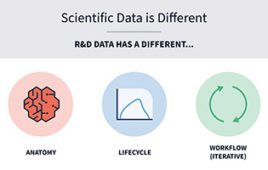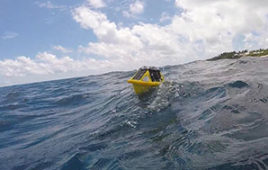 CHAMPAIGN, IL — It might not be possible to convince someone who believes that vaccines cause autism that they don’t. Telling skeptics that their belief is not scientifically supported often backfires and strengthens, rather than weakens, their anti-vaccine views. But researchers say they have found a way to overcome some of the most entrenched anti-vaccine attitudes: Remind the skeptics — with words and images — why vaccines exist.
CHAMPAIGN, IL — It might not be possible to convince someone who believes that vaccines cause autism that they don’t. Telling skeptics that their belief is not scientifically supported often backfires and strengthens, rather than weakens, their anti-vaccine views. But researchers say they have found a way to overcome some of the most entrenched anti-vaccine attitudes: Remind the skeptics — with words and images — why vaccines exist.
The researchers report their findings in the Proceedings of the National Academy of Sciences.
The widespread fear that vaccines cause autism got its start in 1998, when The Lancet medical journal published a study of 12 children that claimed to link the measles, mumps and rubella vaccine to a later onset of autism. The study was quickly refuted and eventually retracted, but the idea that vaccines might endanger children’s health took hold.
Though outbreaks still occur, most young parents have never seen measles, mumps or rubella in their lifetime, thanks in large part to the efficacy of vaccines. Many have, however, heard accounts of children with autism whose behavioral difficulties became evident days, weeks or months after their first vaccinations.
Parents who decline to vaccinate their children often focus on the perceived risks of vaccines, said University of Illinois graduate student Zachary Horne, who conducted the new study with U. of I. psychology professor John Hummel, psychology professor Keith Holyoak of the University of California at Los Angeles, and UCLA graduate student Derek Powell.
“Perhaps we need to direct people’s attention to the other aspect of the decision,” Horne said. “You may be focused on the risk of getting the shot. But there’s also the risk of not getting the shot. You or your child could get measles.”
While measles and rubella have been eradicated in the U.S., travelers to other parts of the world sometimes bring these diseases home and infect others — quite often children or adults who have not been vaccinated. A 2014 measles outbreak, for example, infected 383 people in the Midwest, many of them unvaccinated Amish in communities in Ohio.
A previous study attempted to moderate people’s anti-vaccination views using a variety of approaches, including challenging anti-vaccine fears and sharing science-based information about the dangers of preventable diseases. All of the approaches failed.
In the new study, the researchers tested 315 participants’ views about a number of potentially controversial subjects, including their attitude toward vaccines and their willingness to vaccinate their children.
Participants were then randomly assigned to one of three groups. The first looked at materials challenging the anti-vaccination point of view. The second, a “disease risk group,” focused on the risks associated with measles, mumps and rubella. Participants read a paragraph written by a mother about her child’s infection with measles; saw pictures of a child with measles, a child with mumps and an infant with rubella; and read three short warnings about the importance of vaccinating one’s children. This intervention was more in-depth than those in the previous, unsuccessful study, Horne said.
A third group, a control group, read about a subject not associated with vaccines.
Afterward, participants again completed the vaccine attitude evaluation and answered questions about their past vaccine behaviors and their intention to vaccinate their children in the future.
“We found that directing people’s attention to the risks posed by not getting vaccinated, like getting measles, mumps and rubella and the complications associated with those diseases, changed people’s attitudes positively toward vaccination — and that was for even the most skeptical participants in the study,” Horne said. “Actually, the largest effect sizes were for people who were the most skeptical.”
“Of course, the skeptics are the people with the greatest amount of room to move, so in a sense that finding is unsurprising,” Hummel said. “But it’s also extremely important, because those are precisely the people you want to move. That’s the kind of result we were really looking for.”
Horne said he thinks the study was successful in part because it addressed parents’ primary concern — their children’s well-being.
“People who fear vaccines ultimately do care about the safety of their children, so our manipulation focuses on the safety of their children,” he said. “So, there’s not just one calculation in your decision whether to get a vaccination, but now there are two.”




